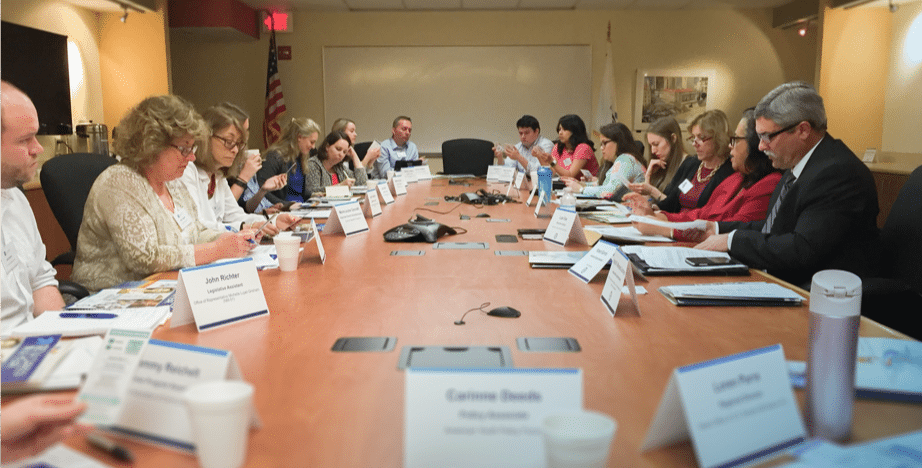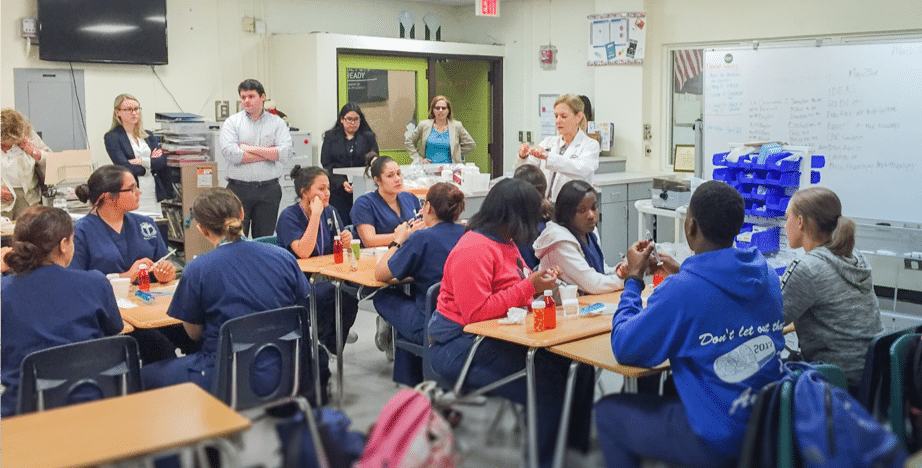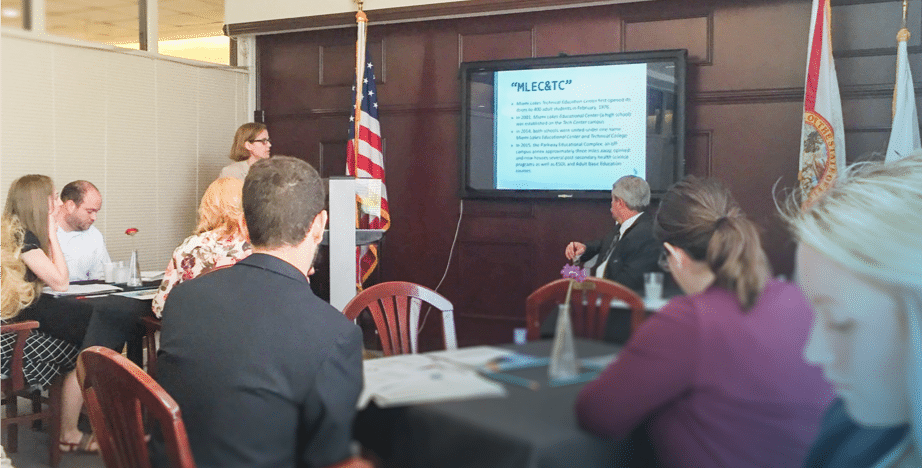Overview
This discussion group meeting represented the first session of the four-part discussion group series on Closing Persistent Achievement Gaps and Preparing All Youth for Long-Term Success. The discussion series brings together representatives of national organizations in the civil rights and education policy communities. The goals of the discussion group series are to develop a deeper understanding of the dimensions of the achievement gaps in education; understand a framework of comprehensive support strategies for students from groups that are underrepresented in higher education; identify policy levers for change; and develop a strong peer-to-peer network of advocates with a shared commitment to closing achievement gaps. This first session set the stage by providing participants with an in-depth analysis on the dynamics of achievement differences among student groups, and educational and social factors that perpetuate disparities. Presenters included Ronald F. Ferguson, Faculty Co-Chair and Director of the Achievement Gap Initiative at Harvard University; and Ronald Williams, Vice President of the College Board.
CLICK HERE TO READ A FULL SUMMARY OF THIS MEETING!
A brief video clip from Ronald Ferguson’s presentation at this meeting is now available online at AYPF’s YouTube Channel. More video clips will be available soon. Click on the thumbnail below to view this clip!
Ronald Ferguson Comments on Youth Peer Culture
 Ronald Ferguson is the faculty co-chair and director of the Achievement Gap Initiative (AGI) at Harvard University. The AGI is a university-wide effort to bridge the gap between research and practice in ways that help raise achievement and close gaps. He is also faculty co-chair of the Pathways to Prosperity Initiative (for school-to-career transitions) and the creator and research director of the Tripod Project for School Improvement. An MIT-trained economist, he is a Senior Lecturer in Education and Public Policy and holds a joint appointment between the Harvard’s Graduate School of Education and the Kennedy School of Government. He is also a Senior Research Associate at the Kennedy School’s Malcolm Wiener Center for Social Policy. His teaching and publications cover a variety of issues in education and economic development. In addition to teaching and writing, Dr. Ferguson consults actively with schools and governmental agencies on efforts to raise achievement levels and close achievement gaps. His most recent book is Toward Excellence with Equity: An emerging vision for closing the achievement gap, published by Harvard Education Press. Dr. Ferguson earned an undergraduate degree from Cornell University and PhD from MIT, both in economics.
Ronald Ferguson is the faculty co-chair and director of the Achievement Gap Initiative (AGI) at Harvard University. The AGI is a university-wide effort to bridge the gap between research and practice in ways that help raise achievement and close gaps. He is also faculty co-chair of the Pathways to Prosperity Initiative (for school-to-career transitions) and the creator and research director of the Tripod Project for School Improvement. An MIT-trained economist, he is a Senior Lecturer in Education and Public Policy and holds a joint appointment between the Harvard’s Graduate School of Education and the Kennedy School of Government. He is also a Senior Research Associate at the Kennedy School’s Malcolm Wiener Center for Social Policy. His teaching and publications cover a variety of issues in education and economic development. In addition to teaching and writing, Dr. Ferguson consults actively with schools and governmental agencies on efforts to raise achievement levels and close achievement gaps. His most recent book is Toward Excellence with Equity: An emerging vision for closing the achievement gap, published by Harvard Education Press. Dr. Ferguson earned an undergraduate degree from Cornell University and PhD from MIT, both in economics.
 Ronald A. Williams is a vice president of the College Board. Among several leadership roles, Williams is responsible for strengthening the relationship between the College Board and community colleges throughout the United States. He also provides leadership to a cluster of initiatives dealing with students’ access to, and persistence in, college.
Ronald A. Williams is a vice president of the College Board. Among several leadership roles, Williams is responsible for strengthening the relationship between the College Board and community colleges throughout the United States. He also provides leadership to a cluster of initiatives dealing with students’ access to, and persistence in, college.
Williams joined the College Board in 2007 from Prince George’s Community College in Largo, Md., where he had served as president since 1999, capping an extensive career with community colleges. Before Prince George’s, he was acting president of the Community College of Philadelphia. Prior to assuming that position, he served as vice president for academic affairs at the college, where he provided educational leadership and direction for all academic activities.
While at Prince George’s Community College, Williams significantly expanded the institution’s workforce development program and increased the college’s available technology. Williams also worked on a number of issues that sought to strengthen students’ academic progress. Those projects included work toward restructuring academic degrees to help promote coherence and developing several transfer agreements to help facilitate matriculation to four-year colleges.
From 1991 to 1994, Williams served as vice chancellor for academic affairs and student services for the Minnesota Community College System in St. Paul, Minn. and was vice chancellor of the Connecticut Community College system from 1987 to 1991. Williams began his career in the classroom as an assistant professor of English. Williams is a member of the board of the American Association of Colleges and Universities, the American Association of Community Colleges, and the American Council on Education’s Center for Policy Analysis Advisory Committee. Additionally, he is the past chair of the board of the Directorate for Education and Human Resources of the National Science Foundation.
Williams attended Lehigh University, where he earned a doctorate in literature, a master’s degree in English and a bachelor’s degree in History and English.
DISCUSSION GROUP RESOURCES
- The Educational Crisis Facing Young Men of Color, The College Board: Full Report
- Success at Every Step: How 23 Programs Support Youth on the Path to College and Beyond, AYPF: Summary with List of Programs





